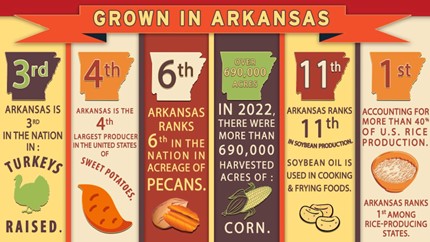Farm Financial Management FAQs
Farm financial management is a comprehensive process that involves planning, tracking and analyzing financial resources to ensure profitability, sustainability and stability of operations. Effective management includes a robust accounting program focused on budgeting, cost control, cash flow management, projections, and informed investment decisions. Armed with accurate financial information, farmers can make important decisions about:
- investing in crops and livestock,
- managing debt,
- maximizing profits and
- the pros and cons of loans and government programs.
AgriBuilder creates the most value for agricultural businesses by integrating:
- intuitive accounting software (Xero)
- seamless and actionable farm management software (Figured) and
- ongoing advice and support from seasoned agriculture financial consultants.
A robust farm accounting program helps farmers manage finances, expenses and income while seamlessly integrating with your farm management system. In addition to these necessities, your farm accounting software must help you streamline the process for annual tax filings. Check out these common signs that your accounting system is broken.
An effective farm accounting process delivers updated financial reports that empower decision making. There are three standard financial statements including the balance sheet, income statement and statement of cash flow. The balance sheet conveys details about the farm’s assets, liabilities and overall net worth. The income statement reports revenues and expenses over a specific period of time, and the cash flow statement highlights the movement of cash.
Adams Brown regularly reviews financial reports with agriculture clients to monitor operations, assess profitability, identify trends for planning and make informed decisions. Together, we also review:
- accounts payable and receivable,
- budget versus actual,
- break-even analysis,
- cost of production,
- crop gross margin,
- depreciation schedules,
- inventory breakdowns by field and/or crop
- market value balance sheet and
- tax projections.
A holistic approach to reviewing your financial and farm management data ensures your ability to make sound business decisions for your farm while planning for future initiatives, investments and goals.
Additional farm financial management insights:
While each farming operation faces unique and different challenges and opportunities, there are some general guidelines which can help improve cash flow. These include:
- timing large purchases with revenue cycles,
- ensuring a diverse source of income (for example, agritourism, integration of wind farms, leasing hunting ground),
- negotiation of payment amounts and terms with vendors/suppliers,
- leveraging lines of credit and
- maintaining an emergency fund.
Understanding your farm’s value is important for various reasons, ranging from financial planning to strategic decision-making. Whether you are buying, selling, planning your estate or evaluating operational success, knowing what your farm is worth can provide critical insights to help you achieve your goals. A thorough farm valuation will help you conclude the true value of your farm.
Map of Conway (AR)
Conway Agriculture Accounting Services
- Agreed Upon Procedures
- AgriBuilder (proprietary integrated accounting and farm management solution)
- Budgeting & Forecasting
- Business Tax Planning & Compliance
- Business Transformation
- Cash Flow Management
- Financial Statement Audits
- Outsourced Accounting
- Succession Planning
- Tax Planning & Compliance for Farm Owners
- Wealth Planning
Arkansas Agriculture Overview
Arkansas’s rich soil and climate diversity allow for the cultivation of a wide variety of crops and livestock, including:
- Rice – Known as the “Rice Capital of the United States,” Arkansas is a leading producer of rice, with different varieties cultivated throughout the state.
- Soybeans – Soybeans are a major cash crop in Arkansas, used for various purposes, including animal feed, cooking oil and biofuels.
- Cotton – Cotton has a long history in Arkansas and is a significant contributor to the state’s agricultural output.
- Corn – It is a versatile crop in Arkansas, utilized for livestock feed, food products and ethanol production.
- Wheat – Wheat farming is prevalent in certain regions, contributing to the state’s grain production.
- Fruits and Vegetables – Arkansas produces a range of fruits and vegetables, including apples, strawberries, tomatoes and sweet potatoes.
- Forestry and Logging – Known as “The Natural State,” Arkansas has one of the most forestry and timber dependent economies in the country.
In addition to crop farming, livestock plays a crucial role in Arkansas agriculture. The state is known for:
- Poultry Production – Arkansas is a major hub for broiler chicken production, ranking high in the nation’s poultry industry.
- Cattle Ranching – Beef cattle are raised in various regions, contributing to both the state’s economy and the beef supply chain.
- Swine Production – Swine farming is another significant component of Arkansas’s livestock industry.
- Aquaculture – Arkansas leads the nation in bait fish and ranks third in the nation for catfish production.


